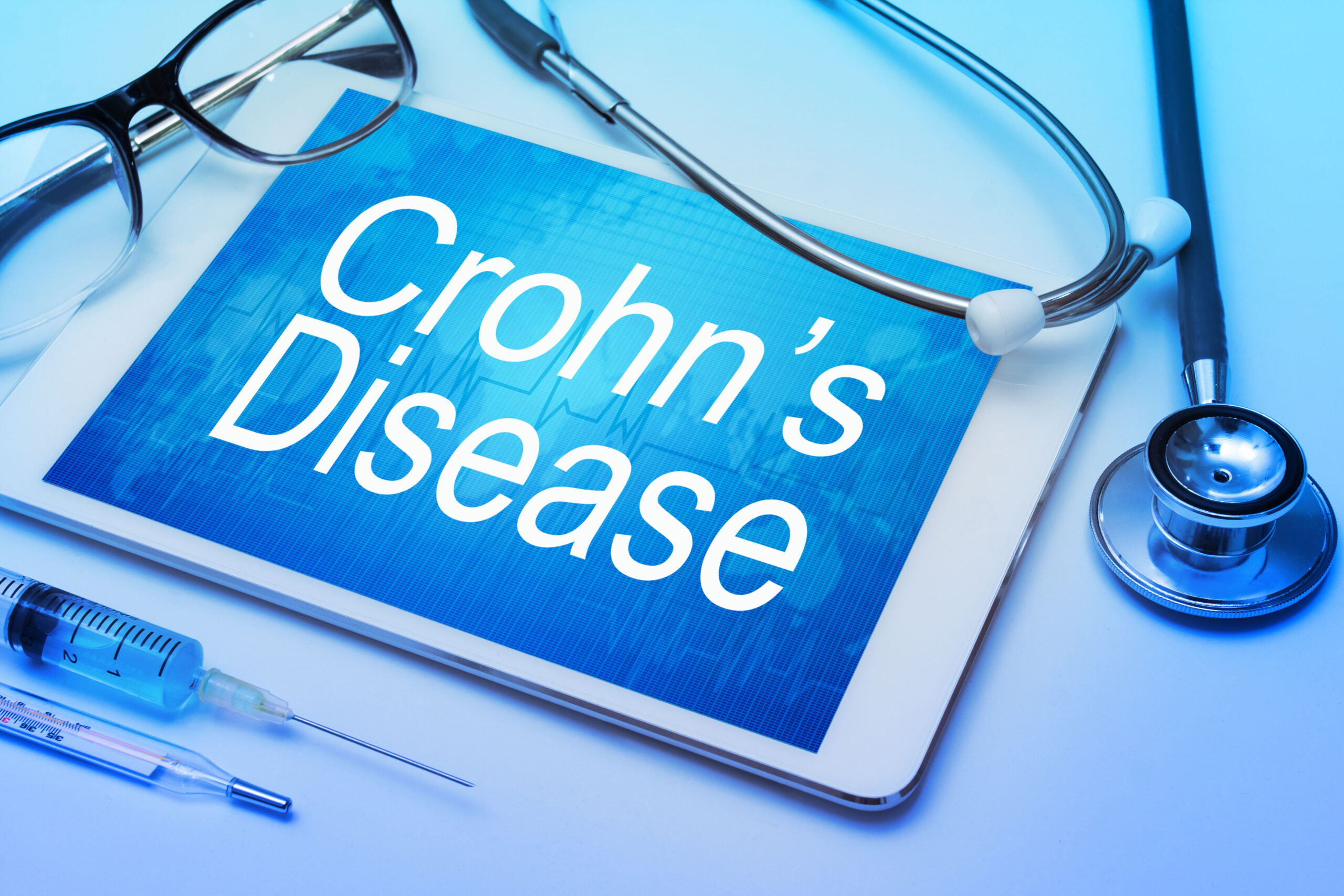Living with Crohn’s disease presents a unique set of challenges. As a chronic inflammatory bowel disease (IBD), it can cause a range of gastrointestinal problems. For many, managing Crohn’s involves a combination of medical treatments, lifestyle adjustments, and dietary interventions. As a dietician, I’ve seen firsthand how the right nutritional approach can alleviate symptoms, improve overall well-being, and even reduce reliance on medications. But the key is to customize the diet to the individual’s needs, where a dietician’s expertise becomes invaluable.
Understanding Crohn’s Disease
Before delving into how dieticians can help, it’s essential to understand Crohn’s disease. This condition affects the digestive tract, causing inflammation that can lead to abdominal pain, severe diarrhea, fatigue, weight loss, and malnutrition. With Crohn’s, inflammation can occur anywhere along the digestive tract, from the mouth to the anus. Still, it most commonly affects the lower small intestine and the beginning of the colon. The exact cause of Crohn’s remains unknown, but factors like genetics, immune system issues, and environmental triggers are believed to play a role. Although there’s no cure for Crohn’s, treatments can significantly reduce symptoms and even bring about long-term remission.
The Role of Diet in Managing Crohn’s
While dietary factors do not cause Crohn’s, what a person eats can significantly influence their symptoms. Certain foods might exacerbate inflammation or trigger flare-ups, while others can relieve symptoms. Since Crohn’s can also make it difficult for the body to digest and absorb nutrients, those living with it often face nutritional deficiencies.
It’s here that the role of a dietician becomes evident. A trained professional can:
Identify Trigger Foods: The first step in managing symptoms is often identifying and eliminating foods that can cause flare-ups. This varies from person to person. For some, spicy foods might be problematic, while others may find dairy or high-fiber foods exacerbate their condition. Through detailed food diaries and elimination diets, a dietician can help pinpoint problem foods.
Ensure Nutritional Balance: With the need to avoid certain foods, it’s crucial that individuals with Crohn’s still receive all the necessary nutrients. Dieticians can create personalized meal plans that ensure a balanced intake of vitamins, minerals, and other essential nutrients.
Manage Weight Fluctuations: Many people with Crohn’s experience weight loss due to decreased appetite or malabsorption of nutrients. Others might gain weight due to medications or eating patterns adopted to cope with the disease. With my background in weight management, I’ve successfully coached numerous individuals to maintain a healthy weight despite the challenges posed by Crohn’s.
Tailored Strategies for Symptom Relief
The symptoms of Crohn’s are diverse, and so are the dietary strategies that can help manage them. For instance, a low-residue or low-fiber diet might be recommended during flare-ups to reduce bowel movement frequency and abdominal pain. On the other hand, during remission periods, increasing fiber intake can support gut health.
Another strategy involves meal replacements or elemental diets, especially during severe flare-ups. These provide essential nutrients in an easily digestible form, giving the inflamed digestive tract a chance to heal.
Furthermore, emerging research suggests that certain diets, like the Specific Carbohydrate Diet (SCD) or the Mediterranean Diet, might benefit some people with Crohn’s. These diets focus on whole foods while excluding specific types of carbohydrates or inflammatory foods.
The Importance of Individualized Care
If there’s one thing I’ve learned in my years of working with those aiming to lose weight and improve their health, it’s that no two bodies are the same. This principle holds even more accurate when it comes to Crohn’s disease. The disease’s complexity requires an individualized approach, considering not only the person’s medical history and symptoms but also their lifestyle, food preferences, and cultural background. Working closely with a dietician ensures that individuals with Crohn’s can navigate the maze of dietary recommendations, debunk myths, and receive guidance tailored to their unique needs. The proper diet can transform a person’s quality of life, relieving debilitating symptoms and fostering a sense of control over the disease.
Embracing a Multifaceted Approach
One of the key takeaways from my years of coaching individuals to achieve their health goals is that nutrition is just one piece of the puzzle. Integrating medical care, stress management, exercise, and dietary guidance is vital for those living with Crohn’s Disease. Here’s how dietitians fit into this broader, holistic strategy:
Collaborating with Healthcare Professionals: Dietitians often work hand in hand with gastroenterologists, general practitioners, and other healthcare specialists. This collaborative approach ensures that dietary recommendations complement medical treatments, leading to better outcomes for the patient.
Addressing Gut Health: Probiotics, prebiotics, and fermented foods can play a role in maintaining gut health and biodiversity. For some, these additions can mitigate symptoms and promote a healthy digestive tract, although it’s essential to introduce them under professional guidance to avoid adverse reactions.
Emotional and Psychological Support: Dietitians understand that living with a chronic condition like Crohn’s can be emotionally taxing. By offering support and guidance on mindful eating and developing a positive relationship with food, dietitians can play a pivotal role in the emotional well-being of their clients.
Educating on Supplements: Due to malabsorption issues or dietary restrictions, some people with Crohn’s may need supplements like iron, vitamin B12, vitamin D, and calcium. A dietician can guide the right supplements, appropriate dosages, and potential interactions.
Adapting to Lifestyle Changes
A diagnosis of Crohn’s Disease often necessitates lifestyle changes. It’s not just about what you eat, but also how you eat. Smaller, more frequent meals might benefit some, while others might need to focus on hydration due to frequent diarrhea. Meal planning and preparation become invaluable skills, ensuring individuals have access to Crohn’s-friendly meals even on their worst days. Dietitians can guide meal prep techniques, shopping tips, and even recipes tailored to the unique dietary needs of those with Crohn’s.
The Power of Community
Connecting with others who understand the challenges of living with Crohn’s can be therapeutic. Dietitians can often point their clients towards support groups, both online and offline. These communities offer emotional support, practical tips, shared experiences, and even recipes catering to those with Crohn’s.
Future Outlook
Research into Crohn’s Disease is ongoing, with new discoveries and advancements offering hope for those living with the condition. Dietitians remain on the frontline, translating these scientific findings into actionable advice for their clients. From exploring the potential benefits of new dietary trends to understanding the evolving landscape of gut health, the dietician’s role in managing Crohn’s is ever-evolving. Living with Crohn’s Disease is undoubtedly challenging, but individuals can lead fulfilling, active lives with the proper support. As a dietician, I’ve been privileged to witness the transformative power of dietary intervention. Whether it’s the joy of a symptom-free day, the satisfaction of a delicious meal that doesn’t trigger a flare-up, or the regained confidence after achieving weight goals, the impact is profound. To those battling Crohn’s, remember you’re not alone in this journey. With dedicated professionals like dietitians by your side, a brighter, healthier future is within reach. As with any health journey, patience, persistence, and optimism are your best allies.
The Vital Interplay Between Diet and Lifestyle in Crohn’s Disease Management
It’s an age-old saying that “You are what you eat.” But for individuals living with Crohn’s Disease, this maxim takes on a whole new meaning. The relationship between diet and lifestyle becomes pivotal in managing and alleviating the debilitating symptoms of this condition. Beyond the obvious dietary restrictions and adjustments, a deeper understanding of the symbiotic relationship between daily lifestyle habits and food choices can make a world of difference in the Crohn’s journey.
Firstly, let’s talk about stress. Numerous studies have shown a direct correlation between stress levels and Crohn’s flare-ups. Stress can not only exacerbate symptoms but might also play a role in the onset of the disease for some. And while life’s pressures are unavoidable, the foods we consume can add to or lessen our stress levels. Consuming a balanced diet rich in antioxidants, omega-3 fatty acids, and essential vitamins can counteract some of the harmful effects of stress on the body. Moreover, certain foods, like those high in magnesium (think leafy greens, nuts, and whole grains), can naturally combat stress by promoting better sleep and muscle relaxation.
Sleep is another crucial element intricately linked with diet. It’s a two-way street: poor sleep can lead to unhealthy food choices due to hormonal fluctuations while consuming foods can directly impact our sleep quality. For example, if consumed late in the day, caffeine and sugar can disrupt sleep patterns. On the flip side, foods high in tryptophan, like turkey, nuts, and seeds, can aid in producing melatonin, the sleep hormone. For those with Crohn’s, optimizing sleep is vital as adequate rest can help in the healing and regeneration of the body, lessening the intensity and frequency of flare-ups.
Physical activity is another cornerstone of lifestyle management for Crohn’s. Regular exercise not only aids in stress reduction but can also help combat some of Crohn’s secondary symptoms, like bone density loss due to prolonged medication use. But here, too, diet plays an essential role. The fuel we provide our bodies determines how effectively we can engage in physical activity. Balancing macronutrients, ensuring adequate protein intake, and staying hydrated is vital for anyone, especially for someone with a chronic condition looking to benefit from the healing power of exercise.
In essence, when we view diet not just as a list of “dos and don’ts” but as an integral part of a holistic lifestyle strategy for managing Crohn’s, its power magnifies. It’s not just about avoiding trigger foods or ensuring nutrient intake; it’s about harmonizing one’s entire way of life around dietary choices. This interconnected approach, where every meal is a step towards symptom management and overall well-being, is where true healing and improved quality of life can be found. It’s a journey that requires patience, knowledge, and consistent effort, but with the proper guidance and mindset, it’s a journey well worth taking.
Managing Crohn’s Disease requires a holistic approach, and dietary interventions are pivotal. With their expertise, dieticians can provide personalized strategies that alleviate symptoms, ensure nutritional balance, and improve overall well-being. Whether you’re living with Crohn’s or supporting someone who is, remember that the journey to better health often begins on the plate. As someone who has dedicated her life to helping individuals transform their health through diet, I believe that with the proper guidance, anyone can thrive despite the challenges posed by Crohn’s.
Your Path to Wellness Starts Here! Call Kimberly Gomer and Schedule a Consultation Today!
Miami residents living with Crohn’s Disease, you don’t have to navigate this journey alone. Let Kimberly Gomer guide you toward a healthier, more vibrant life. With her world-renowned expertise in weight management and holistic health, she’s helped countless individuals transform their lives. Take the first step towards managing your Crohn’s with personalized dietary strategies tailored just for you.
Are you looking for nutritional consulting in Miami for Crohn’s disease? Call Kimberly Gomer now and start your journey towards a brighter, symptom-free tomorrow.

